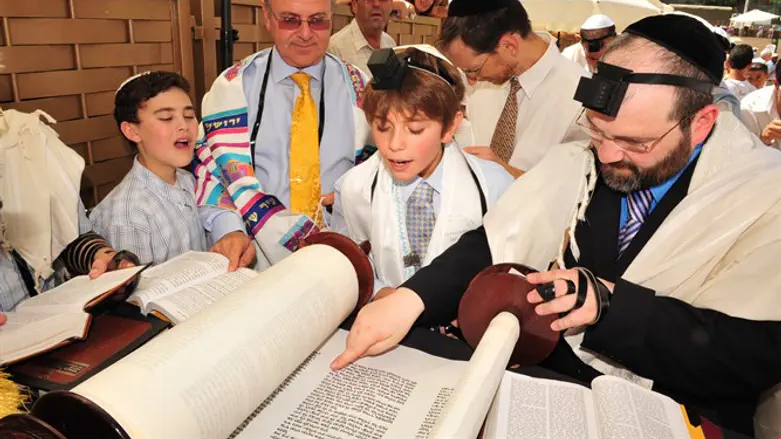
Nearly half of US Jews do not identify with organized religion, a new study by the Pew Research Center finds.
More than one in five, however, are considered “Sunday stalwarts” (or Saturday): those who “actively practice their faith, but they also are deeply involved in their religious congregations.”
The study published Wednesday defines how people practice their religion. It only includes Jews who define their religion as Judaism, or “Jews by religion.”
Conducted last December, the study of more than 4,700 respondents has a margin of error of 2.3 percent.
Among the seven categories, 45 percent of American Jews are listed in the two for the least religious: “religion resisters,” who believe in a higher power but have negative views of organized religion, or “solidly secular,” those who don’t believe in God and do not self-define as religious. The breakdown is 28 percent as “solidly secular” and 17 percent as “religion resisters.”
On the other end of the spectrum, 21 percent of Jews are “Sunday stalwarts.” Eight percent are “god-and-country believers,” who express their religion through political and social conservatism, and 5 percent are “diversely devout,” who follow the Bible but also believe in things like animism and reincarnation.
The somewhat religious are defined as either “relaxed religious” (14 percent), those who believe in God and pray but don’t engage in many traditional practices, or “spiritually awake” (8 percent), those who hold New Age beliefs and believe in heaven and hell.
Americans as a whole are more or less evenly divided among the seven groups. The largest three groups are “Sunday stalwarts,” “relaxed religious” and “solidly secular” at 17 percent each. The smallest are “god-and-country believers” and “religion resisters” at 12 percent each.
“Jewish Americans are the only religious group with substantial contingents at each end of the typology,” the study says.